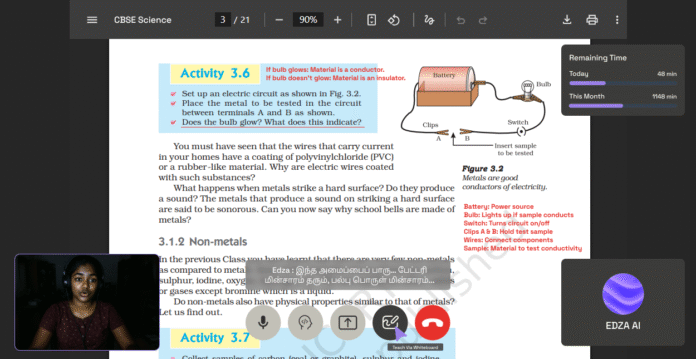Walk into any Indian board-exam preparation ecosystem — online or offline — and you’ll see the same scene repeated: hundreds, sometimes thousands, of students tuned into a single livestream lecture, silently following along while the chat remains muted.
In an era where large language models (LLMs) and AI-powered assistants are a click away, this might seem puzzling. If AI can generate answers instantly, why are students still flocking to crowded classes that offer little personal interaction?
AI Tools Are Used: But Only at the Margins
A 2023 market survey echoed the trend: for serious exam prep, students preferred structured, syllabus-specific resources from board-aligned lectures or curated coaching notes over generic AI outputs. The preference wasn’t just about content quality, it was about trust [1].
The truth is, students do use AI but rarely as a primary study companion. Research from 2025 found that the most common uses for ChatGPT among Indian students were solving MCQs and producing example problems. More complex, exam-style responses like structured definitions or multi-step solutions, made up only a small fraction of usage [2].
Why Livestreams Still Win: For Now
High-stakes exams like CBSE boards or state-level finals require a very particular kind of preparation:
• Coverage that’s 100% syllabus-aligned
• Answers structured to match marking schemes
• Stepwise problem-solving, not just final answers
• Language fluency in the student’s preferred medium
• Continuous, adaptive revision based on prior mistakes
Generic AI chatbots aren’t designed for this. They excel at breadth, not outcome-specific depth. They can generate a definition or summarise a topic, but they don’t track whether the student missed the same step in three past problems or adapt a test to close that gap.
Faced with this, students fall back on what they trust: live lectures, even if it means sharing a teacher’s attention with hundreds or thousands of peers. It’s not perfect, but it feels safer than a bot that might misunderstand the syllabus entirely.
The Case for AI Personal Tutors
This is where a different kind of platform enters the picture, not a searchbot, but a tutor built to behave like the best human teachers:
• Seeing the student’s actual notes or textbook through screenshare
• Co-solving on a whiteboard, line by line, step by step
• Designing adaptive tests based on today’s mistakes, not last year’s syllabus plan
• Remembering prior sessions to avoid repeating the same explanation without progress
Such tutors don’t try to answer everything from astrophysics to baking, they focus narrowly on the chapters, papers, and marking schemes that matter to that student’s immediate exam goals.
Why Edza AI Fits the Gap
Edza AI instead of mimicking a search engine, mimics the personal tact and adaptability of a dedicated tuition teacher only without the constraints of batch sizes, travel, or fixed schedules.
Its design is explicitly exam-aware: it pulls from previous years’ papers, structures explanations according to CBSE or state board marking schemes, and adapts to the student’s progress over time. The voice-first interface in Indian languages means it works equally well for a Hindi-medium Class 10 student in Jaipur or an English-medium CBSE student in Chennai. Aug 15, 2025: Edza AI launches for senior secondary.
A Likely Shift Ahead
As more students encounter AI that can actually teach, not just answer, the appeal of 1,000-student livestreams may start to fade. When a tutor can look at your own notes, explain in your own words, and remember what you struggled with last week, the trade-off between trust and scale begins to disappear.
India’s exam-prep market doesn’t need more content libraries or more massive lectures. It needs tools that can give every student the feeling of personal attention, even in a fully digital space. Edza AI is one attempt to make that happen as a fix for the one thing livestreams and generic AI still can’t deliver: one-on-one, syllabus-true, outcome-driven teaching.
References
[1] George, A. Shaji. (2023). Insights into the Competitive Landscape of Indian Entrance Exam Market: A Comprehensive Survey. 01. 63-89. 10.5281/zenodo.7855578
[2] Singh, V., & Agrawal, R. (2025). Exploring the Role of Generative AI in Indian School Education: A Quantitative Study on ChatGPT’s Adoption Patterns. arXiv preprint arXiv:2505.24126. https://arxiv.org/abs/2505.24126
#EdzaAI #AIForEducation #1on1Tutoring #AITutoring #Hacktivspace
India’s Exam Prep Reality: Why Students Still Crowd Into Livestream Classes—and How AI Personal Tutors Could Change It
RELATED ARTICLES
Recent Comments
on Hello world!




